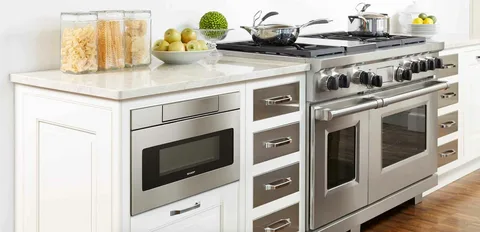When it comes to choosing an oven for your kitchen in New Zealand, the decision often narrows down to two popular options: electric ovens and gas ovens. Each type offers unique benefits and potential drawbacks depending on cooking style, energy preferences, and overall household needs. This article focuses on comparing electric and gas ovens in NZ markets, helping you make an informed decision.
Overview of Electric and Gas Ovens
Before diving into the comparisons, it’s important to understand how each oven operates:
- Electric ovens rely on electric heating elements to generate heat. They are widely known for their even heat distribution and ease of use.
- Gas ovens use natural gas or LPG to create a flame that heats the oven. Many chefs prefer gas ovens for their quick heat and precise temperature control.
Availability and Popularity in NZ
Comparing electric and gas ovens in NZ markets reveals that electric ovens are more commonly available. Most modern homes in urban New Zealand are pre-wired for electric appliances, making installation straightforward. Gas ovens, while slightly less common, are still popular in homes that have existing gas connections.
Retailers such as Noel Leeming, Harvey Norman, and Appliance Shed stock a broad range of electric ovens, while gas ovens are more prevalent in specialist appliance stores or from brands catering to professional kitchens.
Cost Considerations
Price can be a major factor when comparing electric and gas ovens in NZ markets:
- Electric ovens typically have a lower upfront cost and are easier to install.
- Gas ovens, while potentially more expensive to buy and install, may offer lower running costs if your household already uses gas for other appliances.
However, electricity rates and gas availability vary across New Zealand, so it’s essential to evaluate long-term energy costs in your region.
Cooking Performance
From a performance perspective:
- Electric ovens excel in baking due to their consistent heat distribution and fan-forced options.
- Gas ovens heat up quickly and are often preferred for roasting or grilling thanks to their moist heat environment.
Professional chefs often lean toward gas for its responsiveness, while home bakers may appreciate the reliability of electric.
Environmental Impact
Another angle when comparing electric and gas ovens in NZ markets is the environmental footprint:
- Electricity in NZ is largely renewable, thanks to hydro, wind, and geothermal sources. This makes electric ovens a greener choice in many regions.
- Gas ovens rely on fossil fuels, which may be less sustainable over time.
However, energy efficiency models and hybrid solutions are emerging, offering new ways to reduce environmental impact.
Conclusion
Whether you’re a passionate home cook or simply upgrading your kitchen, comparing electric and gas oven NZ markets is crucial to finding the right fit. Electric ovens offer convenience and consistency, while gas ovens provide speed and control. Consider your cooking habits, local energy prices, and home infrastructure before making your choice. Either way, New Zealand’s market offers a diverse range of options to suit every culinary need.



